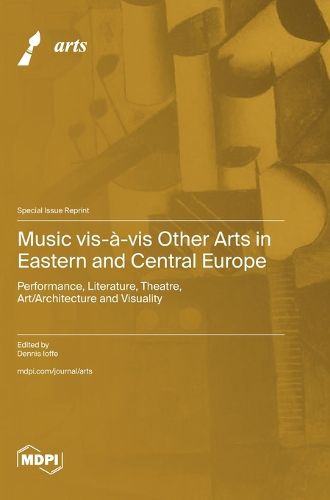Readings Newsletter
Become a Readings Member to make your shopping experience even easier.
Sign in or sign up for free!
You’re not far away from qualifying for FREE standard shipping within Australia
You’ve qualified for FREE standard shipping within Australia
The cart is loading…






This Special Issue revisits Joyce Michel's influential 1959 essay on music's relationship to other arts, extending its transdisciplinary spirit into new historical and cultural contexts. It explores how music interacts with literature, visual art, theater, cinema, dance, and philosophy-not simply as aesthetic parallels but as deeply entangled modes of expression. The volume pays special attention to Eastern European and Soviet contexts, highlighting how music-particularly Russian rock and avant-garde composition-served as a site of resistance and innovation under ideological constraints. It examines unofficial or semi-sanctioned musical production, such as musica clandestina, alongside the work of dissident composers and hybrid artists who blurred genre boundaries. Also featured are underground journalists and zine culture, which helped shape alternative musical publics. Together, the contributions emphasize music's role as a dynamic cultural force, especially when articulated through and against political regimes. Drawing from multiple disciplines, this volume affirms music's enduring capacity to generate meaning in dialogue with other art forms, offering new insights into its multifaceted role in 20th-century and post-Soviet artistic landscapes.
$9.00 standard shipping within Australia
FREE standard shipping within Australia for orders over $100.00
Express & International shipping calculated at checkout
This Special Issue revisits Joyce Michel's influential 1959 essay on music's relationship to other arts, extending its transdisciplinary spirit into new historical and cultural contexts. It explores how music interacts with literature, visual art, theater, cinema, dance, and philosophy-not simply as aesthetic parallels but as deeply entangled modes of expression. The volume pays special attention to Eastern European and Soviet contexts, highlighting how music-particularly Russian rock and avant-garde composition-served as a site of resistance and innovation under ideological constraints. It examines unofficial or semi-sanctioned musical production, such as musica clandestina, alongside the work of dissident composers and hybrid artists who blurred genre boundaries. Also featured are underground journalists and zine culture, which helped shape alternative musical publics. Together, the contributions emphasize music's role as a dynamic cultural force, especially when articulated through and against political regimes. Drawing from multiple disciplines, this volume affirms music's enduring capacity to generate meaning in dialogue with other art forms, offering new insights into its multifaceted role in 20th-century and post-Soviet artistic landscapes.